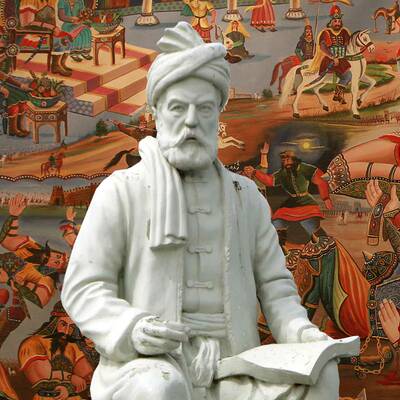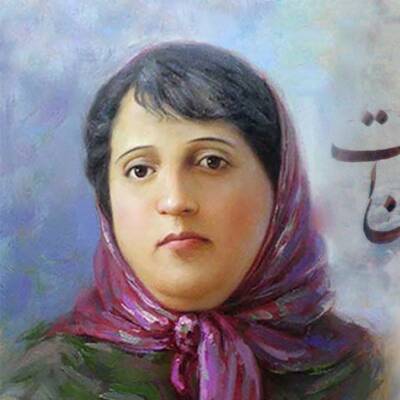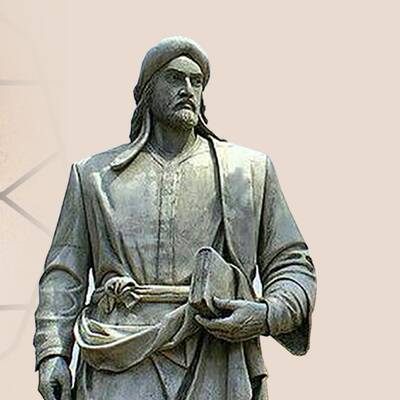
Hojjat-ol-Hagh, Omar ibn Ibrahim Khayyami Nisaburi, known as Khayyam, is one of the Persian prominent scientists and cultural characters. He was a philosopher, mathematician, inventor, astronomer, scholar, faqīh (Islamic jurist), historian, and omniscient in his time. Although he was more a scientist than a literary person, he is world-famous because of his Rubáiyát (quatrains). This poetry became widely known in an English translation by Edward FitzGerald. There is no enough information about Khayyam’s life. The remained documents said he was born in 439 AH., he corrected what is known as Jalali calendar. His scientific works include the correction of the solar calendar by Sultan Malik-Shah’s decree, setting up an observatory in Isfahan, inventing a balance to estimate the specific weight of the objects, and doing some researches in mathematics.
According to his contemporary historian, Bayhaqi, Khayyam and his ancestors were from Nishapur. In philosophy, Khayyam is considered intellectually to be a follower of Avicenna. He mastered philosophy, mathematics, astronomy, and also linguistics, fiqh (Islamic jurisprudence), and history. Khayyam lived in an era where the socio-political situation was chaotic and disordered. Not being capable to rule their country, the rulers were obliged to choose the viziers and to give them executive affairs authority. But these unfortunate viziers were sentenced to death due to the simplest excuses and in this chaos, the determinism advanced and freethought lost the power. There was a huge group of fanatics during this time, who disagreed to all sciences, even mathematics, medicine, astronomy, music, and so on, and they considered the persons who studied such science as zindiq and atheist.
Khayyam sometimes represented dissatisfaction and objection in his Rubáiyát:
“We saner are, O strictest Jud! than you!
With all the fill yet leave the flood to you!
We shed the gore of vines and you of veins:
Now are we keener on the blood or you?!”
Or:
“If drink you not, do not the drunk deprave!
Put forward no deception, hoax, and rave!
Do not go vain that you deal not in wine:
To what you knead poor wine is just a knave!“
It seems that he concealed his poems because of the fanaticism and Khayyam revealed them to just a group of his intimate friends. Excluding repeated rubáiyát(quatrains), it remains 57 rubāʿī (quatrain), which can be certainly attributed to Khayyam. His language is natural and simple and he did not follow anyone in composing his poems. Being gifted and talented as a poet, Khayyam expressed his philosophical viewpoints by poetry.
Khayyam passed away between 506-530 AH. In 1341 SH, the Society for the National Heritage of Iran established a memorial monument for this magnificent philosopher, which was inspired by his ideas.



